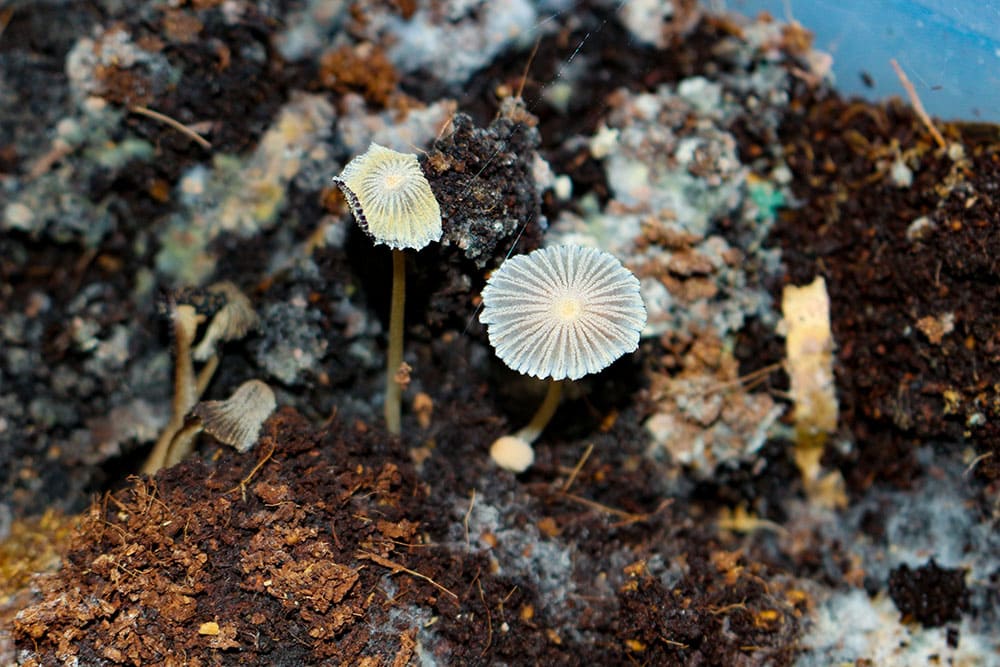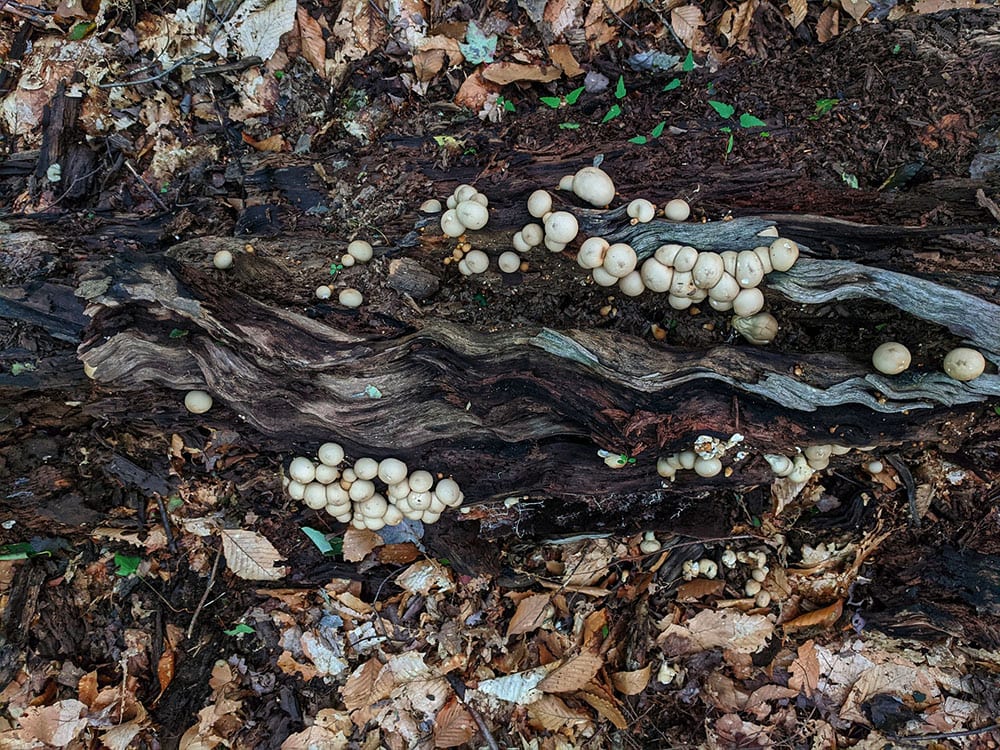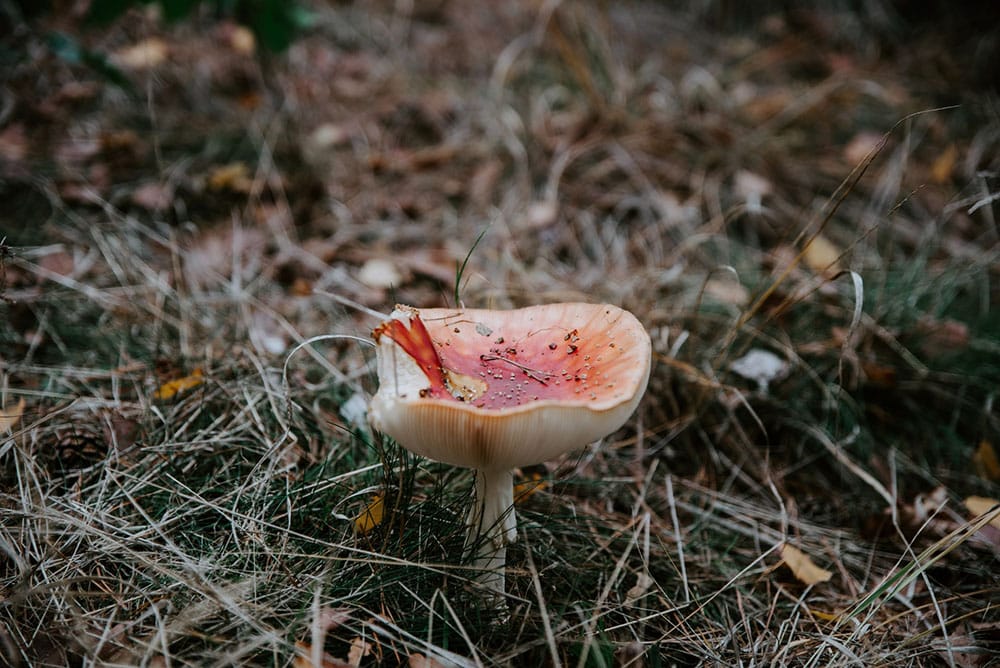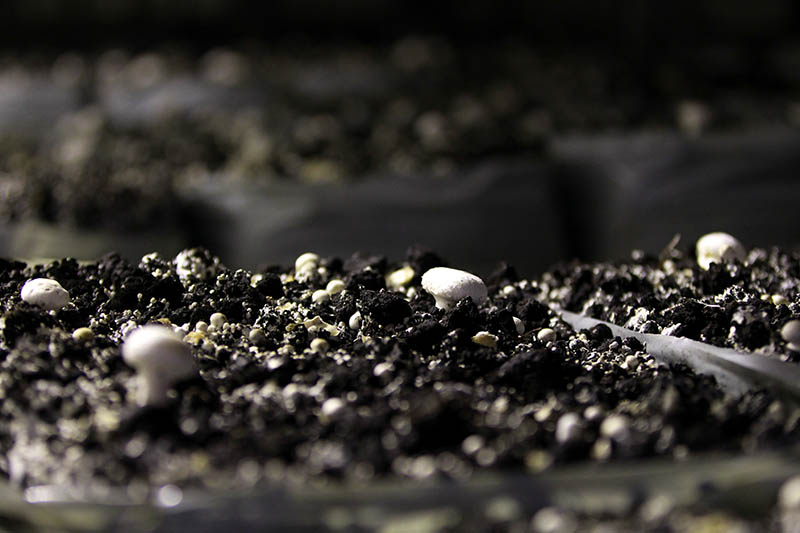Is Mushroom Compost Good for Vegetable Gardens? Facts & FAQ
-
Pete Ortiz
- Last updated:

Mushroom compost is a type of compost developed primarily for use in mushroom growing. It can consist of a variety of organic materials, ranging from manure to hay and straw.
Although designed and named for its use in mushroom growing, mushroom compost can be beneficial for growing a host of other plants and is considered beneficial for vegetable gardens, although its high levels of salt and additional ingredients can mean that it isn’t an appropriate compost for all plants.
What Is Mushroom Compost?

Mushroom compost is used during the mushroom growing process and is also produced as a result of mushroom growing. It is an organic compost that consists of organic and natural materials. It usually has a base of straw or hay and may be combined with manure from livestock or chickens.
Some mushroom composts incorporate gypsum. Once the base materials are combined, the compost is pasteurized by placing it in large piles of compost that heat up naturally. The heating process kills off seeds and unwanted organisms.
Some mushroom compost is used on plants and vegetables as soon as it has been pasteurized, but it can also be used as a growing medium for mushrooms. The mushrooms are harvested after 3–4 weeks, and the fertilizer is sterilized before the spent mushroom compost is used as an organic fertilizer.
Mushroom Compost for Vegetable Gardens
Mushrooms require moisture to fruit, and thanks to its base, mushroom compost is prized for its water-retentive properties. This means that the compost is beneficial for other plants that benefit from moist ground.
The compost also contains nitrogen, phosphate, and potassium, as well as calcium, magnesium, and iron. This combination can be very beneficial for certain plants.
Most commonly, mushroom compost is used in vegetable gardens by mixing it with other soil and using it as a light fertilizer.
Gardeners who are unable to water their plants regularly can benefit from the water retention properties of the mushroom compost, and plants that utilize this organic compound can use up to 50% less water than those using standard soil, although this does depend on the type of mushroom compost and the ratio of compost to soil used.
Clay-based soils, which are dense and difficult to break down, can make a difficult growing medium. Mixing mushroom compost into this heavy soil can help break it down and improve growing conditions.
Using Mushroom Compost
Mushroom compost is not a soil replacement. Rather, it is used to enrich the soil that is being used as a growing medium. Typically, it is advised that you mix one part mushroom compost with three parts soil. The mushroom compost will release nutrients slowly and enable foliage to flourish while inhibiting the growth of weeds.

Uses
Mushroom compost is obviously good for growing mushrooms, but this isn’t its only purpose. The compost has high levels of calcium, making it beneficial for the growth of tomatoes. It can also help prevent the infestation of clubroot in vegetables like cabbage, broccoli, and cauliflower.
What Is Mushroom Compost Best For?
Mushroom compost has high water retention rates, which means that it is good for those plants and vegetables that like moist soil. It is most often used in the growing of mushrooms but can also be beneficial when growing tomatoes, as well as vegetables that are prone to clubroot disease. For general gardening, it is a useful compost to add to the soil of ferns and tropical plants.
How Long Does Mushroom Compost Last in A Bag?
Most compost can be kept for between 3–6 months in the bag before the nutrients break down and it loses its nutritional benefits. After this time, the compost will also have compacted and may become more difficult to use. Storing the compost in a cool and slightly damp environment will help ensure that it keeps for longer.
When Should You Not Use Mushroom Compost?
Mushroom compost has neutral to very slightly acidic pH which means that it should only be used for those plants that prefer this type of growing environment.
Ericaceous plants that prefer a strongly acidic growing medium will struggle to grow in mushroom compost, so it should be avoided. If you have a lot of groundwater or regular flooding, you should also avoid the use of mushroom compost because it will retain a lot of that water and can lead to problems like root rot and fungus.

Can I Plant Directly into Mushroom Compost?
Mushroom compost is not meant as a soil replacement, but to complement soil. As such, it needs to be mixed with soil before planting. Use a ratio of one part mushroom compost to three parts soil to get the benefits of the compost and the soil.
Final Thoughts
Despite its name, mushroom compost is not made from mushrooms, but is a type of compost that is most often used to facilitate the healthy growth of mushrooms. Its properties mean that it can also be beneficial when used to grow other plants, and it is commonly used as an additive in tomato growing because of its high calcium levels.
Mushroom compost can also be used in the growing of some leafy greens like kale and is used in the growth of brussels sprouts and some other vegetables, too. However, it isn’t appropriate for all vegetables, and you do need to check the ideal growing conditions for a particular plant before using mushroom compost.
- Related Read: Do Mushrooms Have Roots? What Do They Have?
Featured Image Credit: mynewturtle, Shutterstock
Contents


